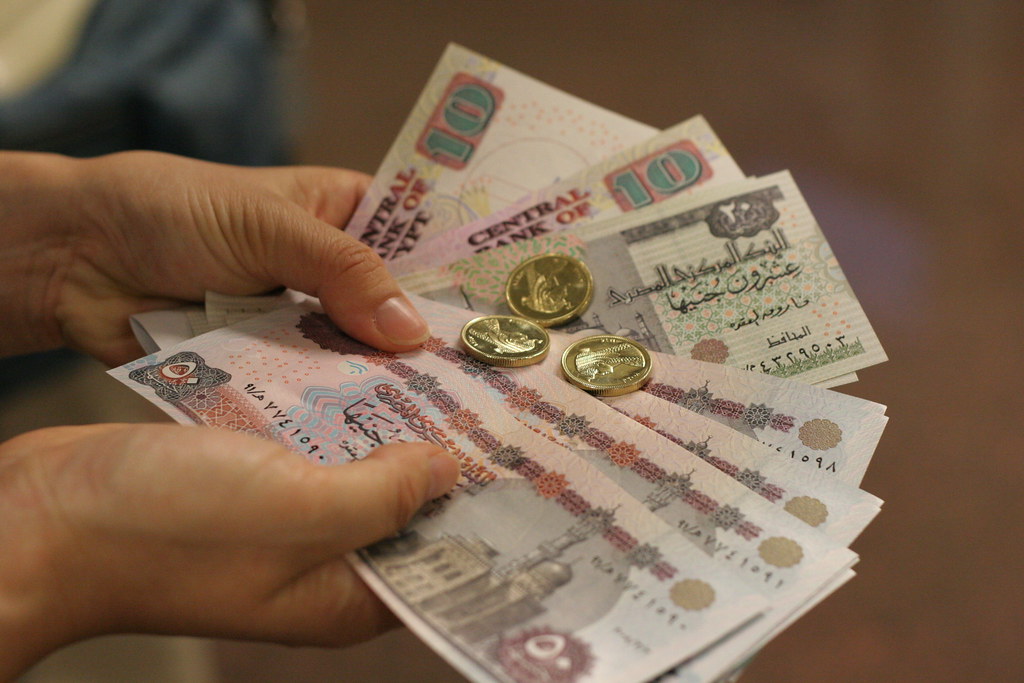This year could have been a banner year for Egyptian tourism. Cairo International Airport’s new Terminal 3 opened in April, but in the five years it took to build, the industry was hit by a global economic crisis.
Sources in the tourism business do not paint a pretty picture. They say that visitor numbers are down, revenues have dropped off sharply, layoffs have been rampant and food quality has suffered.
"Some [tourist] restaurants have begun lowering prices and have accordingly under-graded the quality of food and hygiene," said Wagdy el-Kerdany, chairman of quality control at the Egyptian Tourism Federation. "This is very dangerous, especially nowadays — not only with the economic crisis, but also with the current health crisis," he added, in reference to ongoing fears of an epidemic of the H1N1 virus, or "swine flu."
And while declining revenues have forced hoteliers to reduce expenses, critics point out that poor food quality can serve to hurt Egypt’s reputation as a tourist destination by making visitors sick.
"The most important thing for any tourism-oriented country is the repeat guest," said Nagui Erian, CEO and managing director of the Nile Exploration Group. "If a place has a bad reputation, the visitor will go back home, say he got sick, and you end up losing eight to 15 people that would have otherwise come to Egypt."
El-Kerdany had just finished meeting with restaurant owners about this very issue before talking to Al-Masry Al-Youm English Edition. He explained that the tourism federation and tourism ministry had launched a program to upgrade quality control in kitchens, in addition to hiring an international firm to conduct quality inspections.
Paired down hotel menus are only one indication that — despite official assurances to the contrary — local tourism is suffering.
According to recent statements by the Ministry of Tourism, visitor numbers are down — but not significantly — and Egypt has fared well compared to other destinations. In an interview published in Al-Masry Al-Youm in mid-October, Tourism Minister Zoheir Garana said that tourist numbers to date had fallen by 5.4 percent in 2009. One week later, he told Reuters that he expected this figure to shrink to between 1 and 3 percent by year’s end.
Erian, however, who operates Nile cruise ships in Upper Egypt, disputes the minister’s rosy outlook. "[Occupancy] is down by 35 percent on average and in some places it’s 50 percent," he said. "Revenue, meanwhile, is down by a minimum of 45 percent."
Tourism authorities acknowledge that 2009 began with a 17-percent dip in tourist numbers for the first quarter, only to recover slightly in September with increased British and Polish arrivals. But an abrupt swing of more than ten percent — from 17 percent to 5.4 percent — is hard to explain, especially considering weak summer numbers.
"In summer, we were hoping for an influx of Arab tourists, but this didn’t materialize — thanks to the crisis," Erian said.
Egyptian tour operators, therefore, are doing what operators around the world are doing to shore up visitor numbers: slashing prices. Typically, operators will offer short-term promotions with travel agencies in which would-be clients are given special offers. Permanent price reductions, however, are difficult to reverse, so such offers usually last only up to six months.
But according to Erian, these promotions ultimately serve to decrease revenue. "I know hoteliers in Sharm El Shiekh and Hurgada that are now selling rooms for $18 per night to tour operators, which is nothing," he said. "In the end, the tourist benefits from these offers, while the owner — and Egypt — loses."
The biggest loser in the struggling local tourism industry, however, could well be the employee.
According to a recent study by the Center for Trade Unions and Workers’ Services (CTUWS), Egypt’s hotels and resorts have been lately plagued by layoffs and salary cuts. In a survey of eight tourist locations, CTUWS found that more than 650 employees had recently lost their jobs.
Erian, who has himself recently let go more than 120 of his 600 employees, said that trimming staff was usually the first step towards cutting costs in tough times.
“You have to cut costs and expenses. So what is the first thing? The employee,” he said. “The first is the casual, or seasonal, employee. The law gives us the right to let them go. The others are offered 50 percent of their salaries or one year’s leave without salary. Usually they take the half-salary and stay."
One hotel executive in Cairo said that many local hotels had inflated their number of employees in order to maintain high staff-to-guest ratios. When the crisis hit, however, large swathes of extra staff were the first to be let go.
And with the market brimming with out-of-work applicants, the situation for employees will probably only get worse. According to the CTUWS study, a single hotel recently replaced some 60 staff members with new employees willing to take monthly salaries of between LE300 and LE450 instead of between LE600 and LE750.
“All the companies I work with, including tour operators, have laid people off,” said Erian. “I receive CVs everyday, and most applicants’ last job ended at the beginning of this year, in January or February.”
Local tourism does not operate in a vacuum; the global economic crisis has affected the industry worldwide. Prices are falling everywhere and are expected to keep on falling until year’s end, as European travel agencies adopt new pricing models set every month. Egypt was already a budget destination for many travelers, so continued reductions in prices worldwide seems to have pressured local tourism companies to cut into relatively weak revenues. Authorities say, however, tourism in other countries have been hit harder by the economic crisis.
“Egypt is not an absolute,” said Egyptian Tourist Authority Chairman Amr el-Ezabi. “If you compare what is happening here with what is happening in Spain and Greece, I will be quite satisfied.”




